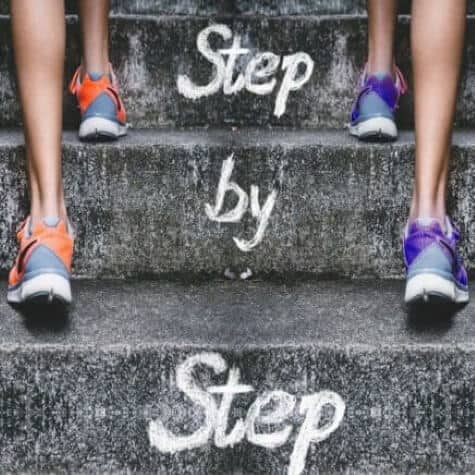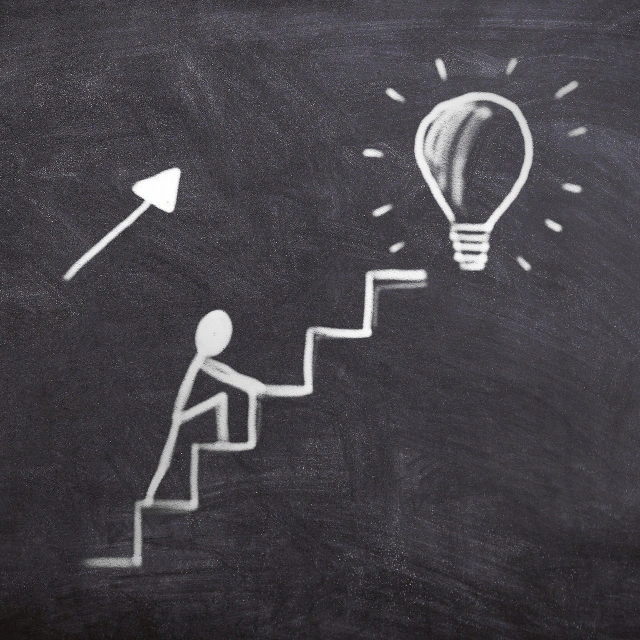The 12 Step Programme: Steps 4, 5 and 6
Completing the 12 Step Programme is not a race. However it is important that the full programme is completed and that we get a full understanding of each step and the full programme. It is not a 3 Step programme of Recovery though many people stall after Step 3. It is important that we carry on working through the Steps and do not get stuck or think we now know and understand it all when we have not been thoroughly through all the steps.
The 12 Steps were written some 84 years ago and in such an order that needs the understanding of one before moving on to the next. The old language of the Steps has never been changed or updated as it has never seemed necessary. The way they are written has helped countless people make changes to their thinking and behaviour and start a life that is not dictated by their addiction.

A very brief recap, Step 1-Mentally, I accept I have an addiction with alcohol, drugs, gambling or eating. Step 2- I mentally accept and realise I can’t get well on my own and that I realise who can help me. Step 3- I am going to take action and change my thinking and behaviour and let those people I have identified in Step 2 help me.
At The Haynes Clinic one of the most common statements that we hear is “I’m not joining anything that is religious,” and out of the 12 Steps, GOD is mentioned 4 times and of the 4 times its twice in the next 3 Steps.
We need to remember that the Steps were written in the time of the American Prohibition but if it was a religious programme then places such as the The Haynes Clinic would not exist, and we would just attend weekly our respective religious organisations .
Step 4 – “Made a searching and fearless moral inventory of ourselves “
We often hear at The Haynes Clinic that it is the wording that frightens or scares people and some will find excuses not to start work on it. The actual purpose of the Step is to become willing to move forwards in Addiction Recovery by honestly examining our past behaviour and past substance misuse and addictive actions and how it has affected ourselves, others around us and our family and loved ones.
It is the start of commencing on a path on which we take more responsibility for our actions and behaviours and stop blaming others which was what we used to do. It is also based on pure honesty and this helps with the further breakdown of our denial of the extent of the problem and the worsening effects of it on our life. This exercise is not to try and find the reasons why we drink, drug or gamble but the effects of our addiction on our life and to break down our denial and the past blaming of others for our demise.
It is simply an extensive exercise in our going back to before we started with our addictive behaviour and thinking and to write down in detail what is basically a full and honest life story. This is an opportunity to be completely honest and to clear our mind of everything we can remember and also, importantly, what others have told us. We have been very quick to deny or find excuses for our behaviour when others have told us what we have been up to. It is important to write it down and to be able to acknowledge the actions that our addictive path has taken us down.
Step 5 – “We admitted to GOD, to ourselves and to another human being the exact nature of our wrongs.”
So having completed a full and detailed and honest life history, in Step 4, in which we detailed all our “wrongs” it is then time to move on to Step 5 and actually share those “wrongs” with another person. It is sitting down and sharing with another human being all the character defects, secrets, and bad behaviour and share about the hurt that had been caused to family and friends and loved ones on our addictive path.
It is critical that the person whom you are sharing your Step 4 with is not a family member or loved one and instead must be your Sponsor, therapist, or someone with at least 2 years of Recovery. They are there to listen to your story, they are not there to judge us. The purpose is not to feel shamed about our past, in the eyes of the person listening to our story. Instead, it is to openly share the garbage and the dark secrets that we have been keeping to ourselves.
This will be the first time that we have willingly shared all with someone else. We need to go to those areas that are shaming to us and discuss them without reaching for a drink or drug to push the feelings down again. This is the beginning of our experiencing and coping with our feelings of guilt, shame, anger, sadness and remorse in a new way.
Step 6 – “We became willing to ask GOD to help us remove our defects of character”
This Step is about our attitude and our willingness to change it. The faults outlined in Step 4 and discussed and shared in Step 5, our past ways of behaving and thinking and also ways of coping, need to change. It is important to realise that the old ways of thinking and behaving have also contributed to worsening our overall life problems.
We do have the ability to change our thinking which will result in different behaviour. This Step is about being willing to make those changes. The key here is do we want to, and the positive answer has to be “Yes,” even though we do not like change. We can now acknowledge that our life has improved without our old addictive thinking and that our new thinking that we are establishing with the help of others is leading us further on the path of Addiction Recovery.



